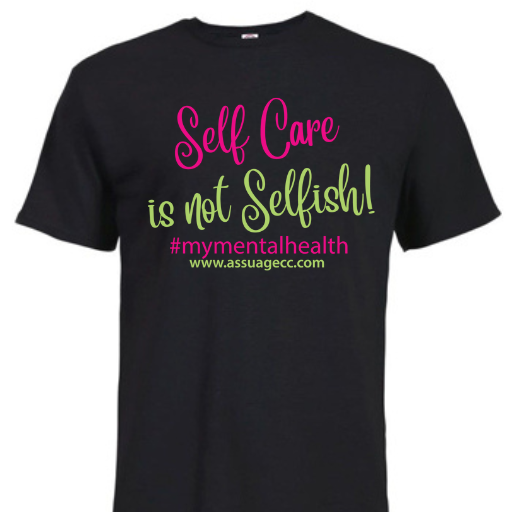
The Relief of being Heard!
Welcome to Assuage Counseling & Consulting, where we believe that you have the power to steer your life in a positive direction, even during its most challenging moments. Life is unpredictable, often presenting us with difficulties and obstacles that seem insurmountable. But you don’t have to surrender to these challenges. At Assuage, we are committed to helping our clients navigate the storms of life by empowering them to transform their thoughts, behaviors, and beliefs.
Our approach is centered on the philosophy that personal growth and change are achievable for everyone, which begins with being heard. Through personalized dialogue, we guide our clients towards understanding and reshaping their patterns of thinking, reacting, and believing. This transformation paves the way for a more resilient and fulfilling life, regardless of the circumstances.
At Assuage, you’ll find a supportive and nurturing environment where your journey towards self-improvement is respected and encouraged. Let us help you not just endure life’s storms, but navigate through them with strength and confidence.

Self Care is not Selfish
Your mental health profoundly impacts your physical world, influencing everything from your daily interactions to your long-term aspirations. Mental well-being is not just about feeling good—it’s about creating a foundation for overall health and effective functioning in your physical surroundings.
Recognizing this interconnectedness, Assuage Counseling & Consulting emphasizes the importance of self-care as a crucial element of maintaining a balanced life. We provide support and guidance to help you nurture your mental health, which in turn enhances your physical health and personal environment.
Through personalized counseling and actionable strategies, Assuage equips you to address mental health challenges, manage stress, and cultivate habits that contribute to a holistic, balanced lifestyle. Our commitment is to assist you in not just surviving, but thriving in all areas of your life.
Client-Centered Therapy, Cognitive Behavioral Therapy (CBT), Solution-Focused Therapy, Motivational Interviewing
If you’re looking for extra support and guidance through a challenging time, you’re just ready to change the trajectory of your life, or simply bring calm to your life storms, I look forward to working with you to achieve your life goals.

Individuals
At Assuage Counseling & Consulting, we specialize in helping individuals navigate the complexities of life’s challenges and changes. Our experienced counselors provide personalized support and practical tools to empower you to overcome obstacles and adapt to change with resilience and strength.

Couples
Assuage Counseling & Consulting guides couples in aligning and achieving their relationship goals through thoughtful, personalized counseling. We help partners understand and reconcile their differences, fostering healthy communication, deeper connections and enhancing their journey together.

Families
Assuage Counseling & Consulting assists families in building, restoring, or strengthening their foundations through improved communication techniques. Our expert counselors provide strategies and support that enhance understanding and empathy among family members, paving the way for a more harmonious and connected home environment.
Purchase Your Own Assuage T-shirt
Assuage T-shirts are crafted from high-quality preshrunk cotton and feature custom printing, available in sizes ranging from Small to Plus Sizes. Small, Medium, and Large – $25; 1X and up – $30. Shipping time 7-10 days.
Frequently Asked Questions
A number of benefits are available from participating in therapy. Therapists can provide support, problem-solving skills, and enhanced coping strategies for issues such as depression, anxiety, relationship troubles, unresolved childhood issues, grief, stress management, body image issues and creative blocks. Many people also find that counselors can be a tremendous asset to managing personal growth, interpersonal relationships, family concerns, couples’ issues, and the hassles of daily life. Therapists can provide a fresh perspective on a difficult problem or point you in the direction of a solution. The benefits you obtain from therapy depend on how well you use the process and put into practice what you learn. Some of the benefits available from therapy include:
- Attaining a better understanding of yourself, your goals and values
- Developing skills for improving your relationships
- Finding resolution to the issues or concerns that led you to seek therapy
- Learning new ways to cope with stress and anxiety
- Managing anger, grief, depression, and other emotional pressures
- Improving communications and listening skills
- Changing old behavior patterns and developing new ones
- Discovering new ways to solve problems in your family or marriage
- Improving your self-esteem and boosting self-confidence
Everyone goes through challenging situations in life, and while you may have successfully navigated through other difficulties you’ve faced, there’s nothing wrong with seeking out extra support when you need it. In fact, therapy is for people who have enough self-awareness to realize they need a helping hand, and that is something to be admired. You are taking responsibility by accepting where you’re at in life and making a commitment to change the situation by seeking therapy. Therapy provides long-lasting benefits and support, giving you the tools, you need to avoid triggers, re-direct damaging patterns, and overcome whatever challenges you face.
People have many different motivations for coming to psychotherapy. Some may be going through a major life transition (unemployment, divorce, new job, etc.), or are not handling stressful circumstances well. Some people need assistance managing a range of other issues such as low self-esteem, depression, anxiety, addictions, relationship problems, spiritual conflicts and creative blocks. Therapy can help provide some much-needed encouragement and help with skills to get them through these periods. Others may be at a point where they are ready to learn more about themselves or want to be more effective with their goals in life. In short, people seeking psychotherapy are ready to meet the challenges in their lives and ready to make changes in their lives.
Because each person has different issues and goals for therapy, therapy will be different depending on the individual. In general, you can expect to discuss the current events happening in your life, your personal history relevant to your issue, and report progress (or any new insights gained) from the previous therapy session. Depending on your specific needs, therapy can be short-term, for a specific issue, or longer-term, to deal with more difficult patterns or your desire for more personal development. Either way, it is most common to schedule regular sessions with your therapist (usually weekly).
It is important to understand that you will get more results from therapy if you actively participate in the process. The ultimate purpose of therapy is to help you bring what you learn in session back into your life. Therefore, beyond the work you do in therapy sessions, your therapist may suggest some things you can do outside of therapy to support your process – such as reading a pertinent book, journaling on specific topics, noting particular behaviors or taking action on your goals. People seeking psychotherapy are ready to make positive changes in their lives, are open to new perspectives and take responsibility for their lives.
It is well established that the long-term solution to mental and emotional problems and the pain they cause cannot be solved solely by medication. Instead of just treating the symptom, therapy addresses the cause of our distress and the behavior patterns that curb our progress. You can best achieve sustainable growth and a greater sense of well-being with an integrative approach to wellness. Working with your medical doctor you can determine what’s best for you, and in some cases a combination of medication and therapy is the right course of action.
To determine if you have mental health coverage through your insurance carrier, the first thing you should do is call them. Check your coverage carefully and make sure you understand their answers. Some helpful questions you can ask them:
- What are my mental health benefits?
- What is the coverage amount per therapy session?
- How many therapy sessions does my plan cover?
- How much does my insurance pay for an out-of-network provider?
- Is approval required from my primary care physician?
- Will my insurance provider reimburse me for mental health services?
Confidentiality is one of the most important components between a client and psychotherapist. Successful therapy requires a high degree of trust with highly sensitive subject matter that is usually not discussed anywhere but the therapist’s office. Every therapist should provide a written copy of their confidential disclosure agreement, and you can expect that what you discuss in session will not be shared with anyone. This is called “Informed Consent”. Sometimes, however, you may want your therapist to share information or give an update to someone on your healthcare team (your Physician, Naturopath, Attorney), but by law your therapist cannot release this information without obtaining your written permission.
However, state law and professional ethics require therapists to maintain confidentiality except for the following situations:
* Suspected past or present abuse or neglect of children, adults, and elders to the authorities, including Child Protection and law enforcement, based on information provided by the client or collateral sources.
* If the therapist has reason to suspect the client is seriously in danger of harming him/herself or has threated to harm another person.



